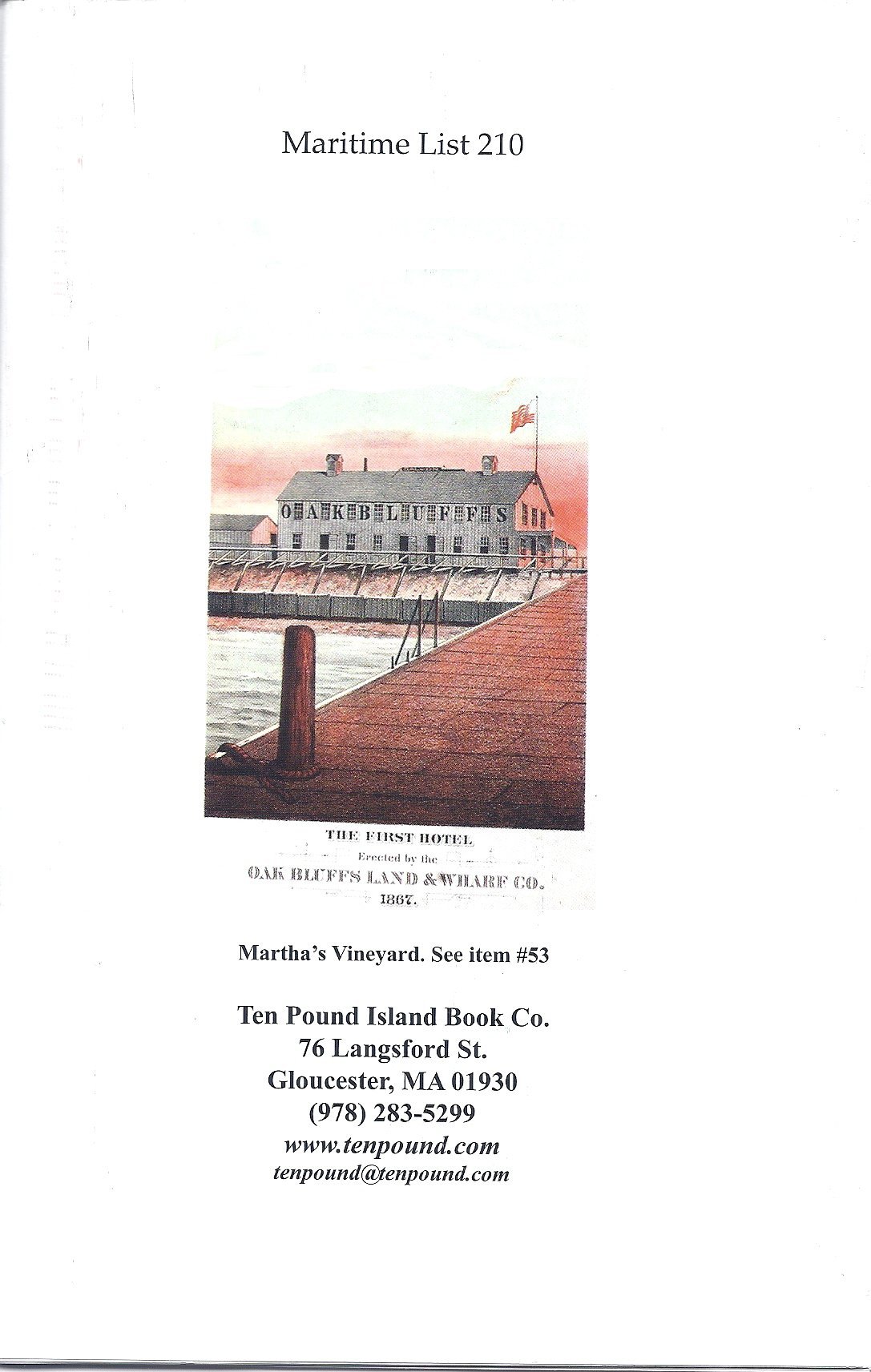Maritime Books from Ten Pound Island Book Co.
- by Michael Stillman

Maritime Books from Ten Pound Island Book Co.
The Ten Pound Island Book Company has issued their Maritime List 210. This is a new collection of works pertaining or related to the sea. Ships, fish, whales, yachts, pirates, navies, explorations, even sea serpents are all topics covered by the books found herein. So, we will set about our own exploration, into the pages of this catalogue.
Item 13 is a fascinating item of revolutionary American naval history. At the dawn of the Revolution, America had virtually no navy, at great disadvantage compared to the British with the world's greatest naval forces. The result was that the Continental Congress had to turn to private shippers, or as the term became known, “privateers.” These were individuals authorized to act like pirates, but on behalf of their nation. The broadside here offered is headed, Instructions to the Commanders of Private Armed Vessels of War...Authorizing Them to make Captures of British Vessels and Cargoes. This broadside contains 11 paragraphs of instructions for privateers. This copy is dated April 3, 1776, and is signed by Henry Laurens as President. Laurens succeeded John Hancock as President of the Continental Congress in 1777, but since the title “President” is printed, but his name handwritten, it appears that he must have signed and issued this copy the year following its printing. A couple of minor manuscript changes have also been made to the text. Priced at $8,500.
Speaking of people who acted like pirates, here is a book about the real thing. Item 14 is the Book of Pirates, Containing Narratives of the Most Remarkable Piracies and Murders... by Henry K. Brooke, published in 1847. This book is filled with chilling accounts of piracy on the high seas, stealing, brutality, murder, all of the things you would want from tabloid journalism. However, the work also includes a couple of other tales. One is of the Amistad, the slaver on which the African slaves rebelled and took command of the ship. They were eventually freed by the United States Supreme Court, ruling that since they were being illegally transported, they had the right to be free. The other story is that of the Caroline, a boat used by rebels during the brief Canadian uprising in 1837. With rebels on board, she scooted across the Niagara River to American territory, where the British pursued her, towed her back, and set the ship afire. It caused much anger and resentment in America at the time, but American officials declined to pursue the case, recognizing the dubious legality of the ship's use. $400.
The United States would have looked upon these ships as not much more than pirates, but officially, this book is about the History of the Confederate States Navy from Its Organization to the Surrender of Its Last Vessel... The Confederate Navy, naturally, had a brief history. Formed in 1861, the South faced a naval blockade by the Union. They did not have much success breaking it. However, the Confederate Navy, which included associated privateers, was able to effect a certain amount of disruption of Union merchant shipping. The Confederates were hopeful that the British would send its navy to assist them, but once the Emancipation Proclamation was issued, which meant siding with the South amounted to supporting the enslavement of people now nominally free, England became too concerned about bad press to oblige. Item 55 was written by Thomas J. Scharf and published in 1887. $250.
Item 5 is The Life, Travels, Voyages and Daring Engagements of Paul Jones Containing Numerous Anecdotes of Undaunted Courage, published in 1813. Paul Jones is the man we now know as John Paul Jones, America's first naval hero. He was able to successfully harass the British at sea during the Revolution at a time when America had virtually no navy compared to its enemy. However, one should not rely too heavily on this book as it is full of errors. For example, it says that Jones died in Kentucky. What a sea captain would even be doing in Kentucky is hard to fathom. Jones died in Paris, and that is Paris, France, not Paris, Kentucky. Perhaps the anonymous author was from Kentucky and when he saw the Paris dateline on Jones' obituary, assumed it must mean Kentucky. $350.